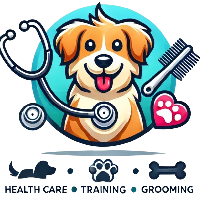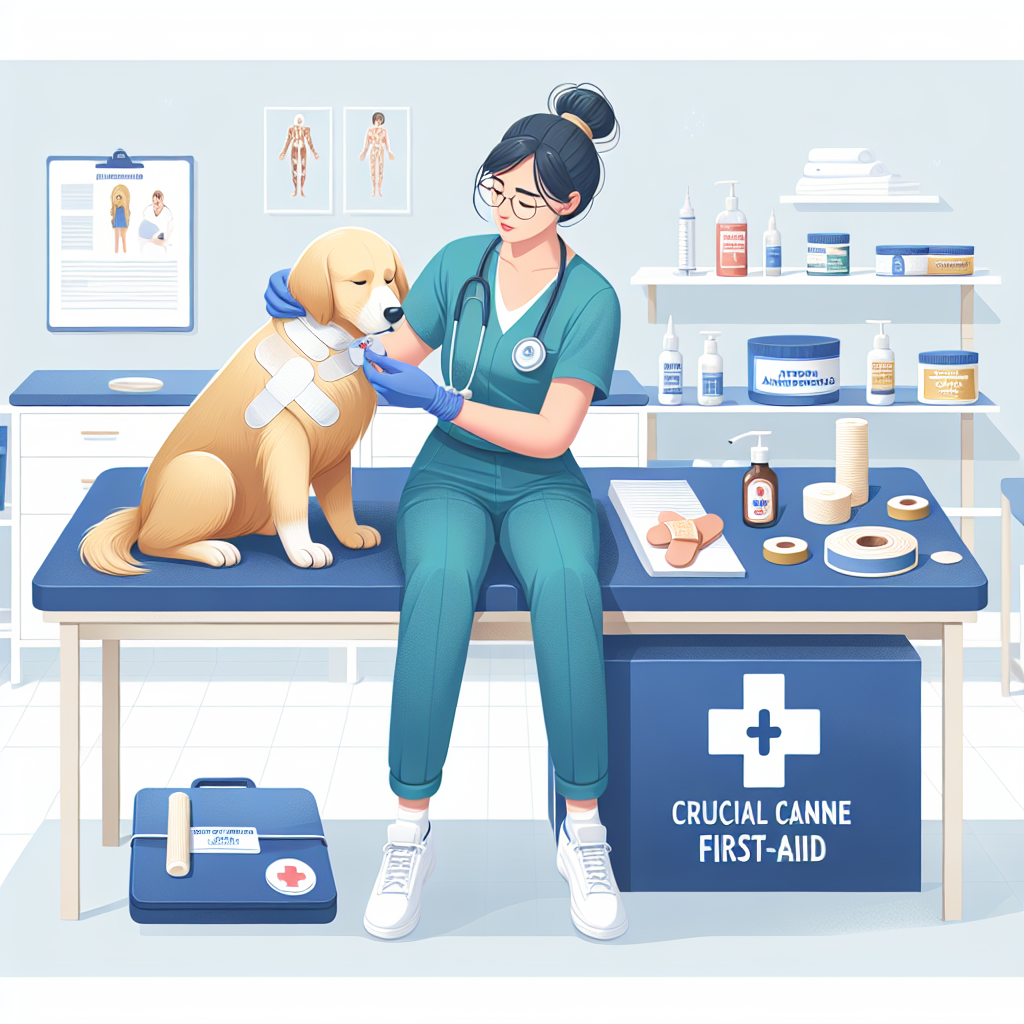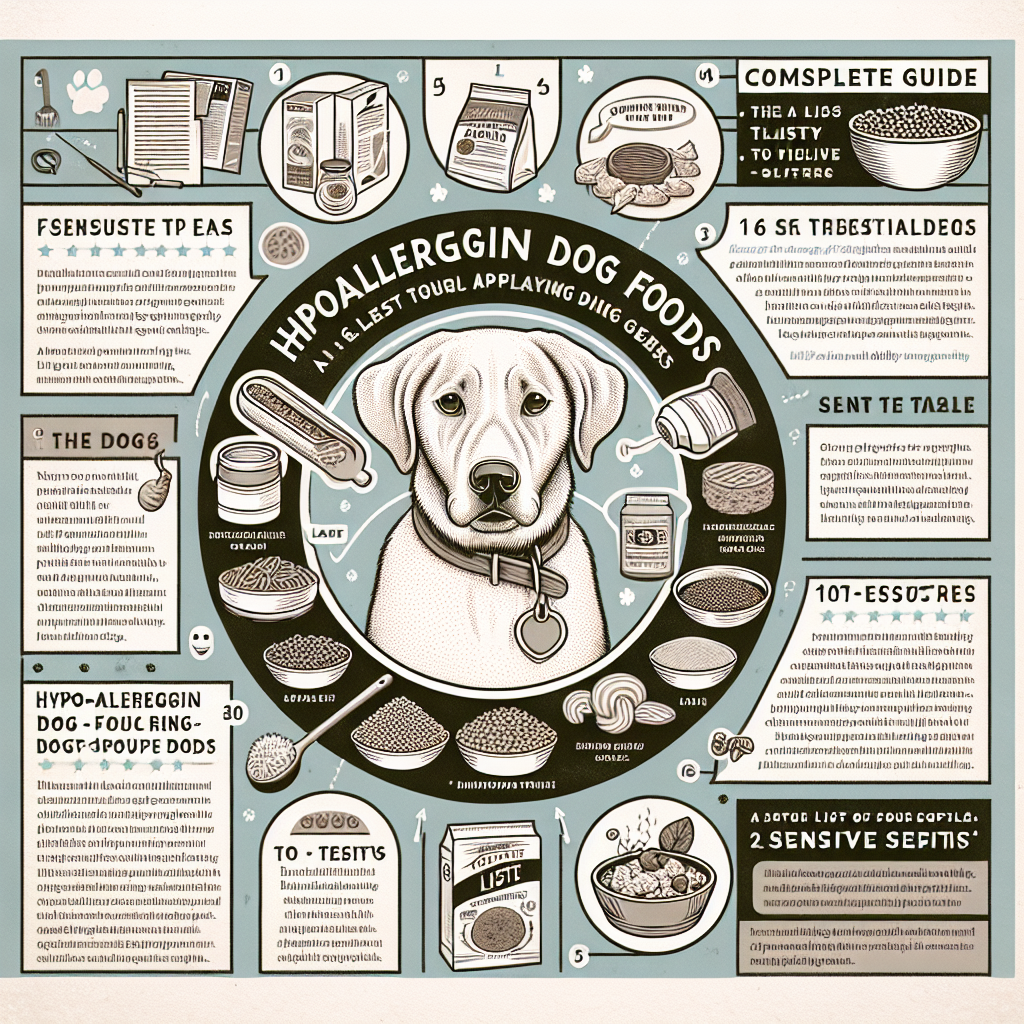
Ensuring your beloved canine friend remains healthy and happy starts with understanding the fundamentals of dog nutrition. Whether you’re a new pet parent or a seasoned dog enthusiast, taking the time to understand what goes into a balanced canine diet can make a huge difference in your pet’s wellness and longevity. This comprehensive guide delves into the essentials of dog nutrition, offering top tips to support a healthier, happier dog.
Table of Contents
- Understanding the Basics of Dog Nutrition
- Key Nutrients for a Balanced Canine Diet
- The Importance of Portion Control
- Reading Dog Food Labels
- Homemade vs. Commercial Dog Food
- Special Dietary Needs
- Hydration: The Forgotten Essential
- Treats and Supplements: What You Need to Know
- Common Dietary Mistakes to Avoid
- Monitoring and Adjusting Your Dog’s Diet
- Conclusion
Understanding the Basics of Dog Nutrition
Before diving into specifics, it’s essential to understand the foundational principles of dog nutrition. Dogs, much like humans, require a balanced diet that includes a mix of proteins, fats, carbohydrates, vitamins, and minerals. Each nutrient serves a unique purpose in maintaining a dog’s overall health and well-being.
Canine Nutritional Requirements
Dogs are omnivores by nature although they lean closely towards carnivorous dietary habits. Their primary energy source comes from proteins and fats, but a balanced dog diet also includes carbohydrates, vitamins, and minerals to ensure optimal health.
Key Nutrients for a Balanced Canine Diet
Proteins
Proteins are the building blocks of your dog’s body, essential for growth, tissue repair, and immune function. High-quality animal proteins such as chicken, beef, lamb, and fish should form the core of your dog’s diet.
Tip: Always opt for dog foods where a specific animal protein is the first ingredient listed.
Fats
Fats provide a concentrated energy source and are vital for the absorption of certain vitamins. They also contribute to healthy skin and a glossy coat. Look for sources of healthy fats like fish oil, flaxseed, and chicken fat.
Tip: Omega-3 and Omega-6 fatty acids are particularly beneficial for reducing inflammation and supporting brain health.
Carbohydrates
Carbohydrates are necessary for energy but should be balanced with proteins and fats. Whole grains, vegetables, and fruits provide beneficial fiber that aids digestion and nutrient absorption.
Tip: Avoid dog foods with excessive fillers like corn or soy; instead, look for whole grains like brown rice or oats, as well as vegetables like sweet potatoes.
Vitamins
Vitamins play critical roles in your dog’s metabolic functions. Essential vitamins include A, D, E, and K, along with various B-complex vitamins.
Tip: Most high-quality commercial dog foods are fortified with essential vitamins, but always consult your vet before adding supplements.
Minerals
Minerals such as calcium, phosphorus, and potassium are crucial for bone development, nerve function, and muscle contractions.
Tip: A balanced dog food will usually contain these minerals, but if you’re making homemade dog food, ensure you include foods rich in these nutrients or consult a vet for a balanced approach.
The Importance of Portion Control
Portion control is essential to prevent overfeeding and obesity, which are common problems in domesticated dogs. The amount your dog needs to eat depends on their size, age, activity level, and health status.
Tip: Use a measuring cup to feed your dog and follow the guidelines provided on dog food packaging. Regularly monitor your dog’s weight and adjust portions as needed.
Reading Dog Food Labels
Understanding dog food labels can be a game-changer. These labels provide information on the ingredients and nutritional content of the food.
Tip: Look for comprehensive labeling, which includes the name of the animal protein, the grain sources, and any additives. Avoid products with “meat by-products” or vague descriptions.
Homemade vs. Commercial Dog Food
Choosing between homemade and commercial dog foods depends on convenience, budget, and your dog’s specific needs.
Homemade Dog Food
Homemade dog food enables you to control the quality and source of ingredients. However, it requires extensive planning to ensure nutritional balance.
Tip: Consult a veterinary nutritionist to create a balanced recipe. Remember to include a good variety of proteins, grains, and vegetables.
Commercial Dog Food
High-quality commercial dog foods are formulated to meet the nutritional standards set by organizations like the Association of American Feed Control Officials (AAFCO).
Tip: Choose premium brands known for their quality ingredients and transparency.
Special Dietary Needs
Certain stages in a dog’s life require specific dietary considerations.
Puppies
Puppies need higher protein and calorie levels to support rapid growth and development.
Tip: Feed your puppy food labeled specifically for growth or all life stages.
Senior Dogs
Senior dogs often need fewer calories to help manage weight but require more fiber for digestive health.
Tip: Look for senior dog food formulas that include added joint supplements like glucosamine.
Dogs with Medical Conditions
Dogs with specific health issues such as allergies, kidney disease, or diabetes require specialized diets.
Tip: Always consult your vet for appropriate dietary plans tailored to medical conditions.
Hydration: The Forgotten Essential
Water is vital for every function in a dog’s body, from digestion to temperature regulation. Ensure your dog has access to fresh water at all times.
Tip: If you feed dry kibble, ensure your dog drinks plenty of water to help with digestion.
Treats and Supplements: What You Need to Know
Treats are great for training and rewarding good behavior but should not exceed 10% of daily caloric intake. Supplements can be beneficial but are generally unnecessary if your dog’s diet is balanced.
Tip: Opt for natural, low-calorie treats and consult your vet before introducing any supplements.
Common Dietary Mistakes to Avoid
- Overfeeding: Leads to obesity and related health issues.
- Feeding Human Foods: Some human foods are toxic to dogs, such as chocolate, grapes, and onions.
- Ignoring Special Dietary Needs: Always cater to your dog’s specific health requirements.
Monitoring and Adjusting Your Dog’s Diet
Regularly monitor your dog’s weight, coat condition, and energy levels. Schedule regular vet check-ups to ensure your dog stays on the right nutritional track.
Tip: Adjust portions and food types according to seasonal changes, activity levels, and health status.
Conclusion
Maintaining proper nutrition for your dog is a continuous journey that requires attention, education, and care. By understanding the essentials of dog nutrition and implementing these top tips, you’ll ensure your canine companion enjoys a long, healthy, and joyous life.
For personalized advice, always consult your veterinarian, who can guide you based on your dog’s unique needs and conditions. A happy, healthy dog starts with their diet, so make every meal count!
#ChatGPT assisted in the creation of this article.





